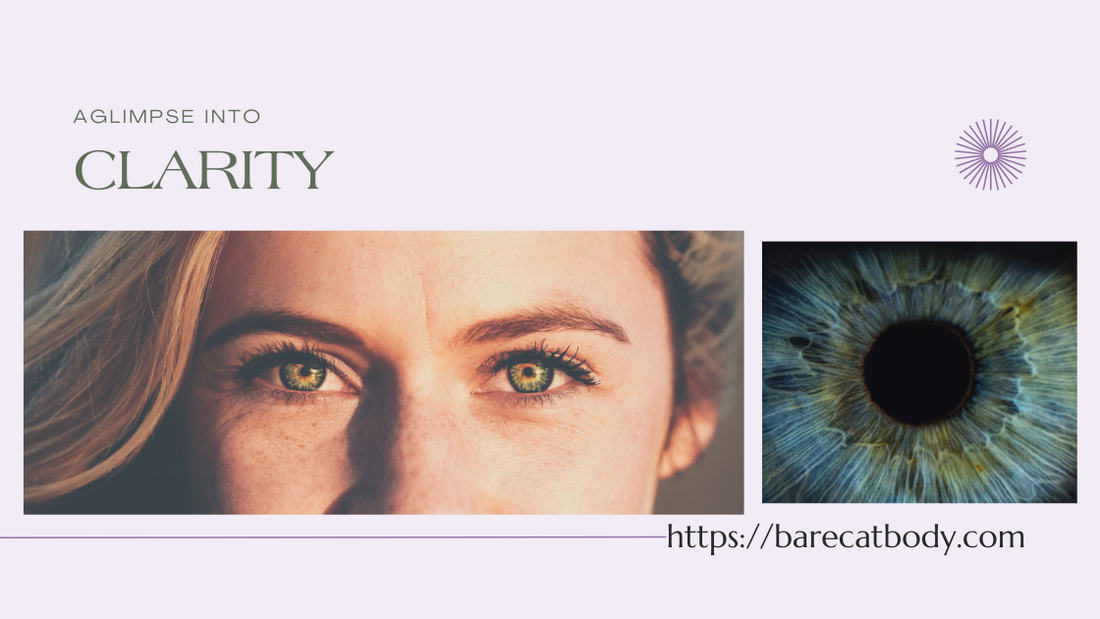
A Glimpse into Clarity: The Potential of Castor Oil and DMSO for Glaucoma and Cataracts
Share
Vision, a precious gift, is something we often take for granted until it's at risk. Two common eye conditions that pose potential threats to our vision are glaucoma and cataracts. In this comprehensive blog post, we explore the intriguing possibility of using castor oil and dimethyl sulfoxide (DMSO) as natural remedies to support eye health and potentially alleviate the symptoms of these eye conditions.
Understanding Glaucoma and Cataracts
Before delving into the potential benefits of castor oil and DMSO, let's first understand the nature of glaucoma and cataracts.
Glaucoma: Glaucoma is a group of eye conditions that damage the optic nerve, typically due to increased intraocular pressure. If left untreated, it can lead to irreversible vision loss. Symptoms may include tunnel vision, eye pain, and a gradual decline in peripheral vision.
Cataracts: Cataracts involve the clouding of the eye's natural lens. This cloudiness can lead to blurry or dim vision, difficulty seeing at night, and increased sensitivity to glare. Cataracts are primarily associated with aging but can also develop due to eye injuries or other medical conditions.
The Potential of Castor Oil for Eye Health
Castor oil, derived from the seeds of the castor bean plant, is celebrated for its various therapeutic properties, including anti-inflammatory, antimicrobial, and moisturizing qualities. These properties have led some individuals to consider its potential use in eye care.
Benefits of Castor Oil for Eye Health:
-
Anti-Inflammatory Properties: Castor oil's anti-inflammatory properties may help reduce eye inflammation, potentially alleviating symptoms related to glaucoma.
-
Lubrication: The natural lubricating qualities of castor oil may help relieve dry eyes, a common concern for individuals with glaucoma or cataracts.
-
Antioxidant Effects: Castor oil contains antioxidants that can protect the eyes from damage caused by free radicals. This is particularly relevant to conditions like glaucoma.
-
Moisturization: Castor oil's moisturizing abilities can help soothe irritated eyes and improve overall eye comfort.
Exploring DMSO for Eye Health
Dimethyl sulfoxide (DMSO) is a natural substance derived from wood pulp, known for its remarkable ability to penetrate the skin and transport other substances directly to affected areas. DMSO is believed to have anti-inflammatory and analgesic properties that can be beneficial for eye health.
Potential Benefits of DMSO for Eye Health:
-
Anti-Inflammatory Action: DMSO's anti-inflammatory properties may help reduce inflammation in the eyes, which can be beneficial for individuals with glaucoma.
-
Analgesic Effects: DMSO's analgesic properties can help alleviate eye discomfort and pain, making it potentially useful for individuals with eye conditions like glaucoma.
-
Enhanced Nutrient Delivery: DMSO's unique ability to transport substances through the skin can carry the beneficial compounds in castor oil directly to the eyes, potentially maximizing their impact.
-
Improved Blood Flow: DMSO is believed to improve blood circulation, which can help nourish the eyes with essential nutrients.
Using Castor Oil and DMSO for Eye Health
Incorporating castor oil and DMSO into your eye health regimen can be a thoughtful approach, but it's crucial to use them wisely and safely. Here's how you can start:
1. Quality Matters: Ensure you use high-quality, pure castor oil and DMSO from reputable sources to guarantee their safety and efficacy.
2. Professional Guidance: Always consult with an eye care specialist or healthcare professional before starting any new treatment for glaucoma or cataracts.
3. Proper Application: Use a clean, sterile dropper to apply a mixture of castor oil and DMSO to the eyes, ensuring the area is clean and free of makeup or debris.
4. Dosage and Frequency: Adhere to your healthcare provider's recommendations regarding the appropriate dosage and frequency of application. This will depend on the severity of your condition and your specific needs.
5. Consistency: For the best results, use the mixture consistently according to your healthcare provider's guidance.
6. Monitoring: Regularly visit your eye care specialist to monitor the progress of your condition and adjust your treatment plan as needed.
Caution and Considerations
While castor oil and DMSO offer potential benefits for eye health, it's crucial to exercise caution and consider the following points:
1. Eye Sensitivity: The eyes are highly sensitive organs. Perform a patch test and monitor for any adverse reactions to the castor oil and DMSO mixture.
2. Hydration: Both castor oil and DMSO can potentially lead to dryness. Ensure your eyes remain adequately hydrated and consider the use of artificial tears or prescribed eye drops.
3. Consultation: Always consult with an eye care specialist or healthcare professional to ensure that any treatment aligns with your unique needs and the specific nature of your eye condition.
4. Quality Assurance: Opt for high-quality DMSO and castor oil to ensure safety and efficacy.
5. Individual Responses: Natural remedies may yield varying results from person to person. What works for one may not work for another.
Finally: A Hopeful Outlook for Eye Health
In conclusion, the potential of castor oil and DMSO in supporting eye health and addressing conditions like glaucoma and cataracts is a subject of growing interest and research. While they offer exciting possibilities, it's essential to tread carefully and responsibly, under the guidance of healthcare professionals.
At the heart of the journey towards better eye health is the commitment to maintaining regular eye care check-ups, seeking professional guidance, and making informed choices that align with your individual needs. Castor oil and DMSO may offer an additional dimension to your eye health regimen, but the foundation should always be a proactive approach to safeguarding your vision. The eyes are the windows to the soul, and their well-being is a treasure worth preserving.
